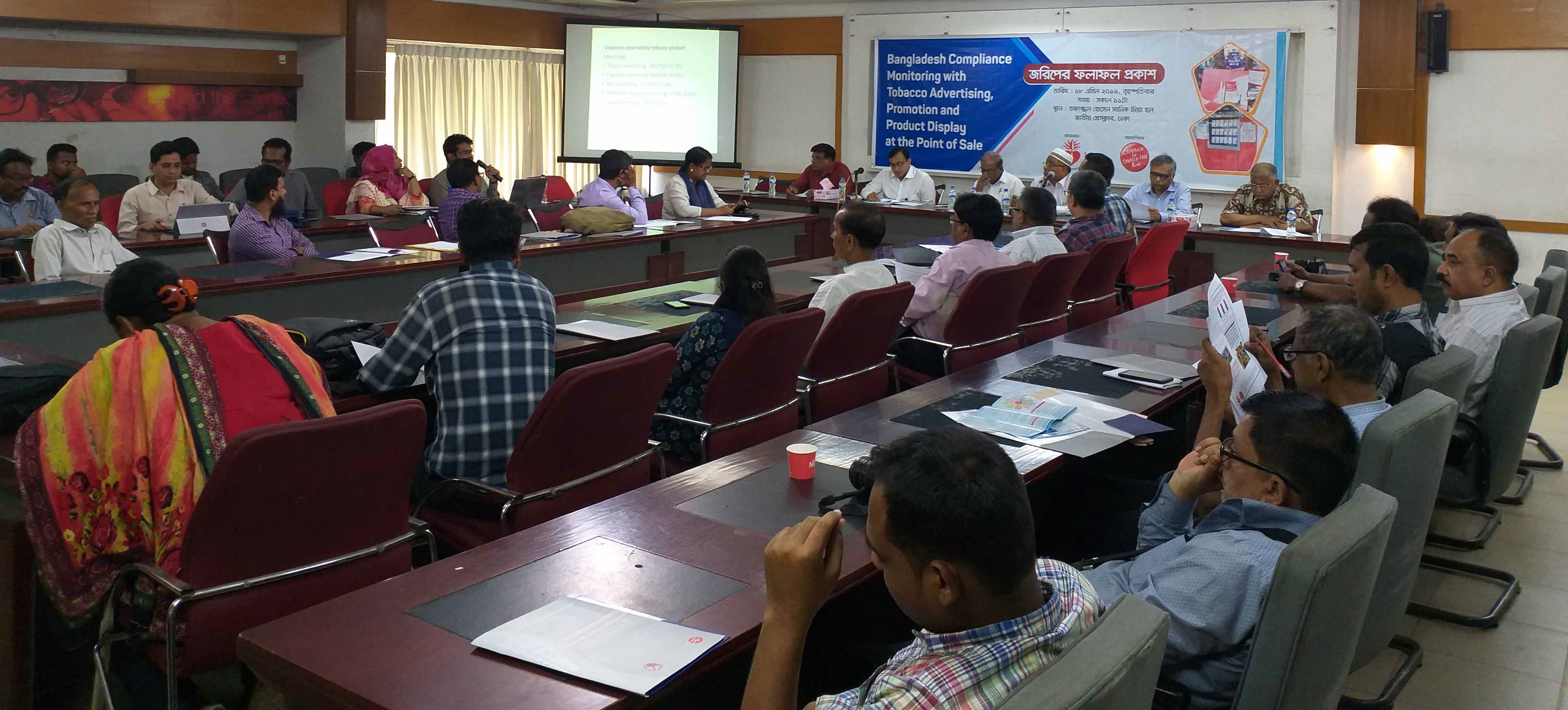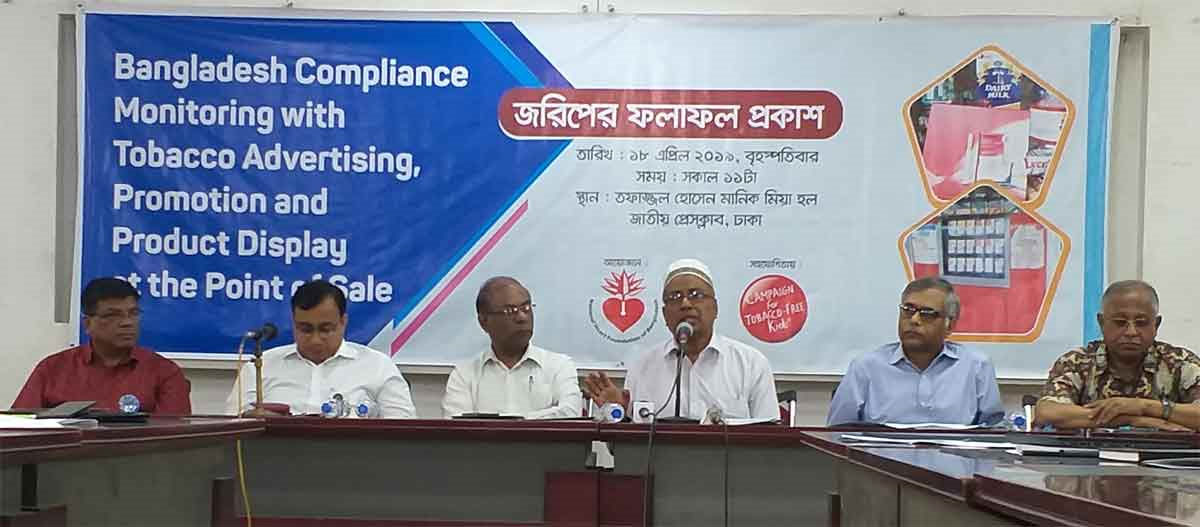
The result of a survey titled 'Bangladesh Compliance Monitoring with the Ban on Tobacco Advertising, Promotion and Product Display at the Point of Sales’ conducted by National Heart Foundation of Bangladesh, technically supported by Campaign from Tobacco Free Kids (CTFK) formally published on 18 April 2019 (Thursday) at National Press Club.
The survey shows, no POS in Bangladesh meets the TC law properly. Tobacco products stickers are shown in 18% POS, 14% POS show of tobacco posters, 8% has branding mark, and banner of tobacco products are seen in 1% of the POS. In addition to these, there were discounted coupons, gift items, in the shops of tobacco products, which were indirect ads of tobacco products. Moreover, nowadays in many shops, stickers with the message 'cigarettes available at fair prices'- are shown and price of different cigarettes brands are displayed. This is also a kind of advertisement, which is prohibited by law.
Couple of recommendations came our through this survey, like:
Participants emphasized on those recommendations and also added couple of points as recommendations. Speakers at the seminar said that one-third of the deaths of every year in Bangladesh are responsible for cardiovascular disease. And one of the main causes of this cardiovascular disease is tobacco consumption. In addition, due to tobacco use, many people are suffering from cancer, lung diseases, and many other non-communicable diseases. So, there is no alternative to control tobacco.

In order to control tobacco use among the mass people, the direct and indirect advertising of all type of tobacco products (cigarettes, bidi, jarda, gul, sadaapata etc) is prohibited. But in the trap of tobacco companies, ordinary businessmen have been promoting advertisements of tobacco products in their stores, knowingly and unknowingly.
According to the amended 'Smoking and Tobacco Products Usage Control Act' 2013, any advertisements, showcasing, direct-indirect advertising of tobacco products, has a provision of imprisonment for three months, and fine up to one lakh taka or both are punishable. The proper implementation of this law is extremely important to protect the younger generation from the dangers of tobacco use. To this end, the concerned authorities and law enforcing agencies need to be aware to implement the law properly, urged the speakers. On the other hand, the advertisement of tobacco products in the name of product display should be clearly forbidden by the law. As well as for stopping the violation of the law, the organizers demanded amendment of the existing TC law to bring the concerned tobacco companies under the punishment.
Professor Dr. Nasiruddin Ahmed, Former NBR Chairman and Senior Fellow of BRAC Institute of Governance and Development was present in the seminar as chief guest. The seminar was presided over by Professor Dr. Sohel Reza Chowdhury, Head, Department of Epidemiology and Research, National Heart Foundation and Research Institute. Mr. Muhammad Ruhul Quddus, Additional Secretary (Rtd.), MoHFW; Mr. Khandaker Zakir Hossain, Deputy Secretary (World Health-2) and Program Manager, Tobacco Control, Health Service Division, Ministry of Health and Family Welfare; Professor Dr. Golam Mohiuddin Faruque, Joint Secretary General, Bangladesh Cancer Society and Mr. Abdus Salam Mia, Grants Manager, Campaign for Tobacco Free Kids were present in the seminar as special guests. National Heart Foundation of Bangladesh's program officer Dr. Ahmad Khairul Abrar presented the key note and highlighted the results of the survey. Representatives from various anti-tobacco organizations were also present in the seminar.